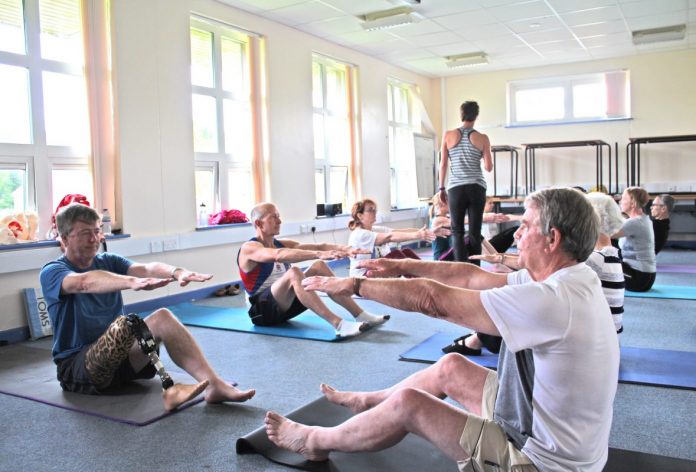Ellen Rowles from Action PR Ltd sheds light on why third party partnerships hold the key to success in improving leisure facilities for schools and colleges.
In these times of economic uncertainty and budgetary constraints, many local authority schools and colleges are exploring alternative ways to improve their fitness offering whilst seeing a return on investment.
According to the latest research from Sport England, education sites are a key provider of sports facilities in England, as they own over a third (39%) of all facilities. Furthermore, 77% of sports halls and 61% of artificial grass pitches are located on school, college and university sites.
For many, the opening up of school sports facilities is a cost-effective means of maximising access for all in the community to sporting opportunities. However, it’s not only the community that benefits from this practice. The schools and colleges also gain from having additional and improved facilities, wider networks with a range of other organisations such as local sports clubs and an improved relationship with their communities.
“There are numerous benefits from working with a third party partner: it helps the health of pupils and opens up educational institutions to a wider range of community groups which can lead to the development of new pathways for pupils. It also allows young people to make the transition from school sport to community sport and helps them realise opportunities, leading to a habit of lifelong participation,” says Jez Gray, Head of Sport and Public Services at Carshalton College.
“At Carshalton College we’ve seen huge benefit to working in partnership with leisure solutions provider Pulse. We simply didn’t have the knowledge, expertise or capital to be able to invest in the right facilities. Working with Pulse has meant we can create in partnership a facility that meets the needs of our pupils while securing future provision for the community.”
Downlands Community School Success
Before 2006, Downlands Community School in Hassocks, West Sussex, had poor sports facilities mainly comprising a first floor gymnasium. As a result, community use was not a priority. However, this changed when a culmination of a number of grants enabled the school to develop a stand-alone Sports Centre. Funding for the £2m building came from the Big Lottery, West Sussex Council. In addition, Downlands secured a football foundation grant of £282,000 towards a new 3G floodlit pitch. These new sports facilities meant the school could offer a community programme.
After exploring a range of options and management models, the school and governors decided to appoint Freedom Leisure – a not-for-profit leisure trust. One of the main factors for outsourcing the community management was to enable the school to continue to focus on teaching and learning whilst allowing Freedom Leisure to use its professional skills in leisure management to develop the Sports Centre.
Making It Work:
It was essential that facility worked for both the school and as a commercial entity for the community to enjoy. Working in partnership with Downloads and drawing on its 15 years’ expertise in operating leisure facilities the arrangement has successfully resulted in the creation of a strategy that ticks both education and business boxes.
Staffing
Freedom Leisure provides a team of expert staff to run the facility including a full-time Centre Manager and two Duty Managers. The team also includes five fitness instructors who are specially trained to offer a programme for young adults. The on-site team is supported by an Area Manager and Freedom Leisure’s Head Office which offer additional support including HR, IT, marketing, fitness, health and safety and business management.
Ethos
Downlands School prides itself on being a high performing, inclusive, community school and is committed to excellence in all it does. By contracting Freedom Leisure to deliver a successful management model that is open 364 days of the year, Downlands can focus on teaching and running an outstanding school. The Centre Manager also works with the school’s PE staff to identify students who are considering a career in the leisure industry and provides them with work and training opportunities.
Sustainability
To ensure the centre is sustainable, Freedom Leisure runs a number different initiatives, most recently developing outdoor Boot Camps to make the most of the extensive school grounds. This has also created an extra revenue stream as sessions are available to non-members as well as current members.
The centre now has over 4,000 community visitors per month and over 50,000 annually as well as over 60 students and staff regularly using the fitness suite. All of which leads to greater health benefits and the potential for wider community participation in sport and fitness.
Top tips
– If you are involved in a capital project – get the design right for both curriculum and community use and consider the staffing implications of your design.
– Explore a range of management models – a not-for-profit model is a perfect partner for a school.
– Ensure your management partner has a flexible approach and that you understand each other’s requirements. Look closely at the ethos and values of the organisation and make sure they are compatible with yours.
– Offer coffee! – A community café is a great way to encourage parents and the wider community to engage with your facility.











